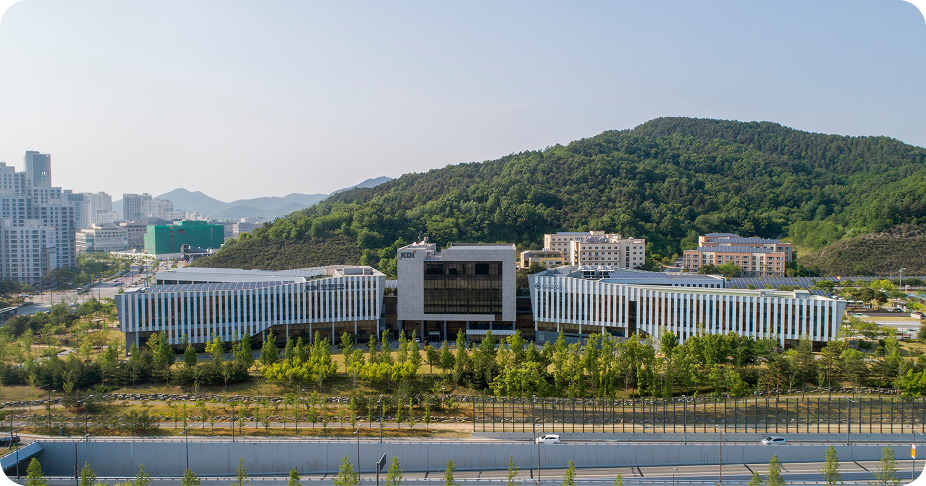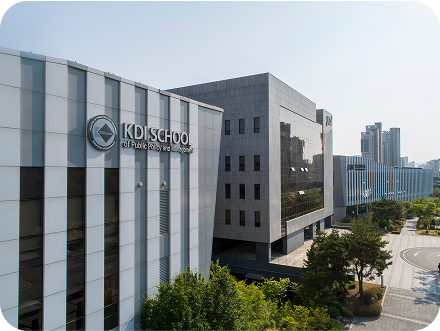Are you ready to confront today’s most urgent policy challenges and develop the strategic thinking and analytical skills needed to shape effective and equitable public solutions?
With Korea’s rapid economic development and its leading role in innovation and intellectual property, KDI School—together with the World Intellectual Property Organization (WIPO) and the Korean Intellectual Property Office (KIPO)—offers the world’s first Master in Intellectual Property and Development Policy (MIPD).
This unique program is designed to equip future leaders with in-depth knowledge and practical skills to navigate the evolving landscape of intellectual property (IP) and its role in development. Students explore the foundations of international IP law, gain insight into how global trends are reshaping the field, and develop the ability to analyze and design IP policies that promote sustainable growth.



Combining academic rigor with real-world application, the MIPD prepares graduates to become competent IP policymakers and professionals in both the public and private sectors—with a strong global perspective and a commitment to development.



Academic goals
Master of Intellectual Property and Development (MIPD) trains domestic and international practitioners from the public and private sectors 1) to understand laws, institutions, and policies related to IP, patents, and innovation, and 2) to acquire specialized knowledge of the impact of IP and related concerns on economic growth and sustainable development.
Program Characteristics
- The world’s first master’s program dedicated to the intersection of IP and development
- A specialized curriculum covering key IP areas, including international IP law and policy, copyright and related rights, patents, and innovation
Are you a good fit for the MIPD?
- Do you have professional or academic experience in public policy, development cooperation, or international affairs?
- Are you interested in how innovation, creativity, and IP contribute to sustainable development?
- Have you worked in or collaborated with public institutions, NGOs, or multilateral organizations?
- Do you have a background in social sciences such as political science, sociology, or public administration?
- Are you currently working in the IP sector, or aspiring to contribute to it through public policy or international cooperation?
- Do you see IP not just as a legal tool, but as a strategic instrument for national and global development?
- Are you seeking to understand the intersection of IP, development, and global governance?
- Do you hope to work at the policy level—in government, WIPO, or other international organizations—to shape inclusive IP systems?
- Are you open to interdisciplinary learning and new frameworks that challenge traditional boundaries between law, economics, and public policy?
- Do you want to develop the skills to design policy solutions that balance innovation, access, and public value?
-
 What is the visioin behind MIPD?
What is the visioin behind MIPD?
“As the world’s first master’s degree program that combines intellectual property and development policy, we aim to cultivate experts who have both professional qualities and open minds. In particular, we call on our graduates to contribute to improving intellectual property policies that promote development on the global stage.”
LEE, JONG-YEARN, Ph.D., ASSOCIATE PROFESSOR -
 WHY did you choose mipd?
WHY did you choose mipd?
“I chose the MIPD program for its unique focus on linking IP with development policy-empowering us to turn bold ideas into real-werld impact.”
JUAN SEBASTIAN RAIFOSO (COLOMBIA), 2025 MIPD -
 how can ip contribute to development?
how can ip contribute to development?
"Developing countries should actively plan for development by making intellectual property rights a priority and raising public awareness of their value, as this can help unlock the benefits IP offers."
GRACIE CHIMVULA (MALAWI), 2025 MIPD -
 WHAT MAKES THE MIPD CLASSROOM
EXPERIENCE UNIQUE?
WHAT MAKES THE MIPD CLASSROOM
EXPERIENCE UNIQUE?
"From patent examiners to IP lawyers and policy makers, the MIPD classroom is a global mosaic of talent. We're not just learning-we're contributing to real change in global IP policy.”
NAZIFA BAKTYBAYEVA (KAZAKHSTAN), 2025 MIPD


